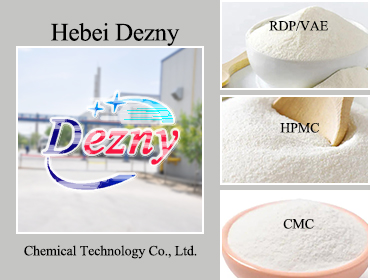
 2024-07-15- readings
2024-07-15- readingsWhen using hydroxypropyl methylcellulose (HPMC) as a thickener and water retainer in self-leveling mortar, it is crucial to select HPMC with an appropriate viscosity because it directly affects the working performance and final effect of the mortar. The following is a detailed discussion of the viscosity selection of HPMC and its impact on the performance of self-leveling mortar.
### 1. Definition of HPMC viscosity and its role in self-leveling mortar
#### 1. Definition of HPMC viscosity
The viscosity of HPMC refers to the flow resistance of its aqueous solution under certain conditions, which is usually measured by the apparent viscosity of the solution (viscosity at a certain shear rate). The viscosity of HPMC ranges from low viscosity (hundreds of centipoise) to high viscosity (hundreds of thousands of centipoise).
#### 2. The main role of HPMC in self-leveling mortar
- **Thickening effect**: HPMC improves the thixotropy of mortar by thickening, so that it has good fluidity when stirring, and has a higher viscosity when static, preventing the mortar from being out of control due to excessive fluidity during construction.
- **Water retention effect**: The water retention property of HPMC helps to maintain the moisture in the mortar, prevents it from cracking due to water loss during the hardening process, and improves the strength and durability of the mortar.
- **Lubricating effect**: HPMC improves the operability of the mortar through lubrication, making construction more convenient.
### 2. Requirements for HPMC viscosity of self-leveling mortar
#### 1. Balance of fluidity and stability
Self-leveling mortar needs to have good fluidity during construction so that it can level and fill irregular ground by itself. At the same time, the mortar needs to be static quickly after construction to maintain its shape and thickness. Therefore, it is crucial to choose HPMC with the right viscosity.
- **Low viscosity HPMC (200-2000 mPa·s)**: has good fluidity, but weak water retention and thickening effects, suitable for self-leveling mortar with high fluidity requirements.
- **Medium viscosity HPMC (2000-10000 mPa·s)**: achieves a good balance between fluidity and water retention, suitable for most self-leveling mortar applications.
- **High viscosity HPMC (above 10000 mPa·s)**: has excellent water retention and thickening effects, but poor fluidity, suitable for self-leveling mortar that requires a long operating time or thick layer construction.
#### 2. Influence of construction environment
The construction environment (such as temperature and humidity) also affects the performance of HPMC. Under high temperature or low humidity conditions, the mortar loses water faster, so it is necessary to select HPMC with higher viscosity to enhance the water retention effect; under low temperature or high humidity conditions, HPMC with lower viscosity can be selected to maintain fluidity.
### 3. The specific impact of HPMC viscosity on the performance of self-leveling mortar
#### 1. Construction performance
- **Flowability**: Low viscosity HPMC can improve the fluidity of mortar, making it easier to spread and level during construction. However, too low viscosity may lead to excessive fluidity, affecting construction control.
- **Thixotropy**: Medium viscosity HPMC can provide appropriate thixotropy, so that the mortar has good fluidity when stirring, and quickly thickens when stationary, maintaining shape and stability.
- **Operability**: Although high viscosity HPMC has poor fluidity, its thickening and lubrication effects can improve the operability of mortar, which is suitable for construction scenes that require a long operation time.
#### 2. Hardening performance
- **Water retention**: Medium and high viscosity HPMC has good water retention, which can prevent the mortar from losing water too quickly during the hardening process, avoid cracks, and improve the strength and durability after hardening.
- **Strength and durability**: HPMC with appropriate viscosity can ensure that the mortar has good mechanical strength and durability after hardening, and prolong its service life.
#### 3. Surface flatness
- **Leveling**: HPMC with appropriate viscosity can ensure that the mortar has good leveling during the construction process, so that it can level and fill irregular surfaces by itself to form a flat ground.
- **Crack resistance**: HPMC with high viscosity can effectively prevent cracks during hardening by improving the water retention and thickening effect of the mortar, and improve the surface flatness and aesthetics.
### 4. Comprehensive consideration of HPMC viscosity selection
#### 1. Construction requirements
According to specific construction requirements (such as fluidity, operation time, thickness, etc.), select HPMC with appropriate viscosity. Generally speaking, HPMC with medium viscosity can achieve a good balance between fluidity and water retention, and is suitable for most self-leveling mortar applications.
#### 2. Environmental factors
Consider the temperature and humidity of the construction environment and select HPMC with strong adaptability. In high temperature or low humidity environment, choose HPMC with higher viscosity to enhance water retention; in low temperature or high humidity environment, choose HPMC with lower viscosity to maintain fluidity.
#### 3. Trade-off between economy and performance
When choosing the viscosity of HPMC, the trade-off between economy and performance should also be considered. High viscosity HPMC has higher cost, but can provide better water retention and thickening effect; low viscosity HPMC has lower cost, but may be slightly lacking in some performance. Therefore, a reasonable choice should be made according to specific application requirements and budget.
### Conclusion
The application of HPMC in self-leveling mortar needs to be comprehensively considered according to specific construction requirements, environmental factors and economy. Generally speaking, medium viscosity HPMC (2000-10000 mPa·s) achieves a good balance between fluidity, water retention and construction performance, and is suitable for most self-leveling mortar applications. In special cases, low viscosity or high viscosity HPMC can be selected according to specific needs to achieve the best construction effect and performance. By scientifically and rationally selecting and applying HPMC, the working performance and final effect of self-leveling mortar can be significantly improved to meet the high quality requirements of modern construction projects.